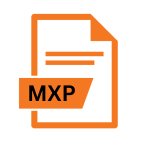.ALP File Extension

Ableton Live Pack File
| Developer | Ableton |
| Popularity | |
| Category | Plugin Files |
| Format | .ALP |
| Cross Platform | Update Soon |
What is an ALP file?
Ableton Live Pack files, or .ALP files, serve as containers for various elements essential for music production within the Ableton Live environment.
These packs typically include audio samples, MIDI clips, presets, device racks, and other resources that enrich the music creation process.
Whether it’s a collection of drum loops, synthesizer presets, or audio effects chains, these packs streamline workflow by consolidating disparate elements into a single, easily shareable file.
More Information.
Upon its introduction, the primary purpose of the .ALP file format was to facilitate the distribution and exchange of Ableton Live content.
Artists, sound designers, and music producers could compile their custom sounds, presets, and compositions into packs, making it effortless for others to incorporate these elements into their own projects.
This fostered a vibrant community of creators who could easily collaborate and share resources, thereby enriching the overall ecosystem of Ableton Live.
Origin Of This File.
The .ALP file format was conceived by Ableton AG, a Berlin-based music software company founded in 1999. With the release of Ableton Live, its flagship DAW, in 2001, the need arose for a convenient way to package and distribute content created within the software.
Thus, the Ableton Live Pack format was born, allowing users to encapsulate their creations and share them with others seamlessly.
File Structure Technical Specification.
Ableton Live Pack file is essentially a compressed archive containing various assets required for music production.
These assets can range from audio samples in WAV or AIFF format to instrument and effect presets stored as XML files. Additionally, MIDI clips, device presets, and documentation may be included within the pack.
Technically, .ALP files adhere to the ZIP compression format, making use of standard compression algorithms to reduce file size while preserving the integrity of the enclosed data.
This structure ensures compatibility with a wide range of software and operating systems, simplifying the process of sharing and distributing packs among users.
How to Convert the File?
Converting .ALP files to other formats may not always be straightforward due to their proprietary nature. Users can extract individual components from a pack using various methods:
- Manual Extraction: Users can manually extract audio samples, presets, or MIDI clips from .ALP files by unzipping them using standard archive utilities like WinZip or 7-Zip.
- Third-Party Tools: Some third-party utilities claim to offer conversion capabilities for .ALP files, although caution should be exercised when using such software to ensure data integrity and security.
- Export from Ableton Live: Within Ableton Live itself, users can export individual elements from a pack for use in other software or projects, albeit with certain limitations depending on the content.
Advantages And Disadvantages.
Advantages:
- Convenience: By consolidating all necessary assets into a single file, .ALP packs simplify the process of sharing and installing Ableton Live content.
- Organization: Packs enable users to organize and categorize their sounds, presets, and clips systematically, enhancing workflow efficiency.
- Portability: .ALP files are easily portable, allowing users to transfer their creations between different computers or share them with collaborators effortlessly.
Disadvantages:
- Compatibility: While .ALP files are native to Ableton Live, they may not be directly compatible with other DAWs or audio software, limiting their versatility.
- File Size: Depending on the content included, .ALP files can become quite large, especially when containing numerous audio samples or high-resolution presets.
- Dependency: Users must have Ableton Live installed to utilize .ALP files effectively, as they rely on the software’s architecture and functionality.
How to Open ALP?
Open In Windows
- On Windows systems, users can open .ALP files by launching Ableton Live and either dragging the pack onto the application window or using the “File” menu to navigate to and open the pack directly.
Open In Linux
- While Ableton Live is not officially supported on Linux, users may be able to utilize compatibility layers or virtualization software to run the software and open .ALP files, albeit with varying degrees of success and performance.
Open In MAC
- Similarly, macOS users can open .ALP files by launching Ableton Live and either dragging the pack onto the application icon in the Dock or using the “File” menu within the application to open the pack.













